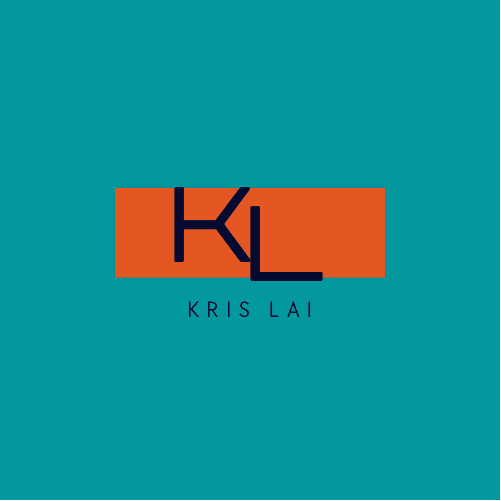Understanding the Lucrative Industry of Self-Development and Personal Growth and Its Potential
The realm of self-development, which encompasses both the personal growth industry and the self-improvement market, has experienced noteworthy expansion in recent years. The coaching business, which serves as a fundamental component of this sector, holds a pivotal role in steering individuals towards realising their fullest capabilities.
Disclosure: If you click on my affiliate/advertiser’s links, I am going to receive a tiny commission. AND… Most of the time, you will receive an offer of some kind. It’ s a Win/Win!
Recognising the significance of the worldwide personal development market is imperative for entrepreneurs contemplating entry into the coaching sphere. In 2021 this market was valued at $41.81 billion. Given the rising need for services that foster personal growth, there exist abundant opportunities for skilled professionals to establish a notable presence within this prosperous industry and capitalise on the growing demand for self-improvement resources.
As individuals increasingly seek ways to enhance their personal and professional lives, the coaching industry stands as a beacon of guidance and support. By tapping into this expanding market, entrepreneurs can not only carve out a niche for themselves but also make a meaningful impact on the lives of those they serve.
It is essential to understand the nuances of this dynamic sector and tailor services that resonate with clients seeking personal development solutions. With dedication, expertise, and a commitment to continuous learning, professionals in the coaching business can thrive in an environment ripe with opportunities for growth and success. Embracing innovation and adapting to evolving client needs will be key in establishing a sustainable presence within this thriving realm of the self-development industry.

Identifying Your Niche: Finding Your Unique Offering in the Self-Development Industry
To gain an edge in the lucrative self-development industry, identifying and establishing your niche is paramount to success. By pinpointing your unique offering and specialising in a specific area within personal development, you can distinguish yourself as an expert in your field.
Conducting a thorough niche market analysis is essential to determine where your coaching expertise aligns best with the needs of your target audience. Understanding the niches within self-development and recognising the niche market for personal growth will enable you to tailor your services effectively.
By carving out a niche for yourself in the self-help coaching industry, you can cater to a specific segment of clients seeking specialised guidance and support on their journey towards self-improvement. Specialisation not only sets you apart from competitors but also allows you to deliver tailored solutions that resonate with your target audience.
Here are some popular niches within the personal development business:
Career Coaching: Helping individuals clarify their career goals, develop job search strategies, improve interview skills, and advance in their careers.
Life Coaching: Assisting clients in setting and achieving personal and professional goals, enhancing work-life balance, overcoming obstacles, and improving overall well-being.
Leadership Development: Working with aspiring or current leaders to enhance their leadership skills, emotional intelligence, communication abilities, and decision-making capabilities.
Self-Confidence Building: Providing techniques and strategies to help individuals overcome self-doubt, build self-esteem, and develop a positive self-image.
Mindfulness and Meditation: Teaching mindfulness practices, meditation techniques, and stress-reduction strategies to promote mental clarity, emotional resilience, and overall mindfulness.
Health and Wellness Coaching: Supporting clients in achieving their health and wellness goals, such as weight management, fitness improvement, nutrition optimization, and stress management.
Relationship Coaching: Assisting individuals and couples in improving communication, resolving conflicts, enhancing intimacy, and building healthy relationships.
Financial Coaching: Helping individuals manage their finances, set financial goals, create budgets, reduce debt, and build wealth for long-term financial security.
Creativity Coaching: Guiding individuals in unlocking their creative potential, overcoming creative blocks, and cultivating innovative thinking in various aspects of life and work.
Spiritual Coaching: Supporting clients in exploring their spiritual beliefs, practices, and values, and aligning their lives with their spiritual principles for greater fulfillment and purpose.
Productivity and Time Management: Providing strategies and tools to help individuals increase productivity, manage time effectively, set priorities, and achieve greater work-life balance.
Emotional Intelligence Training: Teaching individuals to recognize, understand, and manage their emotions effectively, as well as develop empathy, resilience, and interpersonal skills.
These niches are not mutually exclusive, and many personal development professionals may specialize in more than one area or tailor their services to meet the unique needs of their clients. Additionally, new niches may emerge as the personal development industry continues to evolve and address emerging societal needs and trends.
Creating a Strong Brand Identity: Establishing Trust and Credibility in the Self-Development Sector
In the self-development sector, establishing a strong brand identity is paramount to gaining trust and credibility. A well-defined branding strategy can set you apart in a competitive market and position you as an authority in personal growth.
When it comes to branding for self-development businesses, consistency is key. From your logo to your messaging, every aspect of your brand should reflect your values and resonate with your target audience.
Building credibility as a coach requires transparency, expertise, and a genuine commitment to helping others grow. By aligning your brand identity with these principles, you can create a lasting impression that fosters trust and loyalty among clients and followers alike.
Developing Products and Services: Creating Valuable Offerings for Your Target Audience
When it comes to developing products and services in the area of self-improvement, it is crucial to focus on creating offerings that resonate with your target audience. Whether you are going into self-help courses, personal growth workshops, or coaching services, the key lies in providing valuable solutions that address the needs and aspirations of your clientele.
In this business of self-improvement products and services, a strategic approach to development is essential. Conducting thorough market research, understanding consumer preferences, and identifying gaps in the existing offerings can pave the way for creating innovative and impactful solutions.
By aligning your product or service development process with the evolving needs of your target audience, you can position yourself as a trusted provider in the market of self-help products and coaching services. Emphasizing quality, relevance, and effectiveness in your offerings can set you apart in a market saturated with options for personal growth and development.

Marketing and Promoting Your Self-Development Business Effectively: Reaching Your Ideal Clients
In the world of self-development businesses, effective marketing strategies play a pivotal role in reaching and engaging with ideal clients. Crafting a robust marketing plan tailored to the unique offerings of personal growth services is essential for success in this market sector.
When it comes to promoting coaching services and self-help offerings, a blend of online and offline tactics can yield optimal results. Leveraging digital marketing tools tailored for self-growth businesses can enhance visibility and attract a wider audience base. Additionally, implementing social media strategies specifically designed for coaches can foster meaningful connections with potential clients.
Personal development branding can further differentiate your services in the market, establishing a strong brand identity that resonates with your target demographic. By incorporating innovative marketing techniques into your promotional efforts, you can effectively showcase the value of your coaching services and cultivate lasting relationships with clients seeking personal growth opportunities.

Growing and Scaling Your Self-Development Business: Strategies for Long-Term Success and Expansion
Expanding a successful self-development business requires strategic planning and a clear vision for long-term success. Scaling coaching services operations and growing a client base in the personal growth niche market demands sustainable growth strategies that prioritize ethical expansion.
To scale a coaching business effectively, it is essential to focus on expanding services operationally while maintaining quality and integrity. Sustainable growth strategies for self-help businesses involve careful consideration of market trends, client needs, and international expansion opportunities.
For those looking to grow their self-development venture internationally, it is crucial to adapt services to diverse cultural contexts while upholding ethical standards. By implementing scalable practices and expanding client outreach ethically, self-improvement businesses can achieve long-term success and sustainable growth in the competitive coaching industry.

Operating a Personal Development Business
Operating a personal development business involves helping individuals enhance their skills, achieve their goals, and improve their overall well-being. Here’s a recap how you can operate such a business based on our discussion above:
Identify your niche: Determine the specific area of personal development you want to focus on, such as career coaching, leadership development, self-confidence building, mindfulness training, or life coaching.
Gain expertise: Obtain relevant certifications, training, or credentials in your chosen niche to establish credibility and expertise. Continuously educate yourself on the latest trends and techniques in personal development.
Develop your offerings: Create a range of products and services tailored to your target audience’s needs. This may include one-on-one coaching sessions, group workshops, online courses, e-books, webinars, or motivational speaking engagements.
Build your brand: Develop a strong brand identity that reflects your values, expertise, and unique selling proposition. Create a professional website, blog, or social media presence to showcase your services, share valuable content, and engage with your audience.
Market your services: Use a combination of online and offline marketing strategies to reach your target audience. This may include content marketing, social media advertising, email campaigns, networking events, speaking engagements, or collaborations with influencers.
Provide value: Focus on delivering high-quality, transformative experiences that help your clients achieve their personal and professional goals. Tailor your services to each client’s individual needs and provide ongoing support and accountability to ensure their success.
Establish pricing and payment options: Determine your pricing strategy based on factors such as your level of expertise, the value you provide, and market demand. Offer flexible payment options, such as packages, subscriptions, or payment plans, to accommodate different budget levels.
Track progress and gather feedback: Regularly assess your clients’ progress towards their goals and gather feedback on their experience with your services. Use this information to refine and improve your offerings to better meet your clients’ needs.
Expand your reach: Explore opportunities to expand your business by reaching new markets or offering additional services. This may include partnering with other personal development professionals, launching online courses or membership programs, or branching into related areas of expertise.
Stay updated and adaptable: Stay informed about the latest trends, research, and best practices in personal development. Be willing to adapt your approach based on feedback, market changes, and emerging opportunities to ensure the long-term success and sustainability of your business.
By following these steps and consistently delivering value to your clients, you can successfully operate a personal development business and make a positive impact on the lives of others.

Conclusion: Embark on Your Journey to Building a Thriving Self-Development Business Today!
As we come to the end of this post, it is evident that the personal development market is experiencing an unprecedented explosion of growth. Entrepreneurs and individuals alike are seizing the opportunity to capitalise on this trend with passion and purpose.
In conclusion, then, there has never been a better time to take advantage of the burgeoning self-development industry. By leveraging your expertise and aligning it with the needs of this expanding market, you can embark on a journey towards building a thriving self-development business that not only fulfils your entrepreneurial aspirations but also contributes positively to the lives of others.
- How Live Shopping Can Skyrocket Your Small Business Sales: The Ultimate Guide to Getting Started
- Turn AI Anxiety into Competitive Advantage: How to Future-Proof Your Workforce for the AI Revolution
- Unlock Profit: Calculate Customer Lifetime Value & Maximize Growth
- Creating a Customer Persona: A Step-by-Step Guide On How To Do It
- Unleashing the Power of Digital Signage: The Best Software to Transform Your Business






